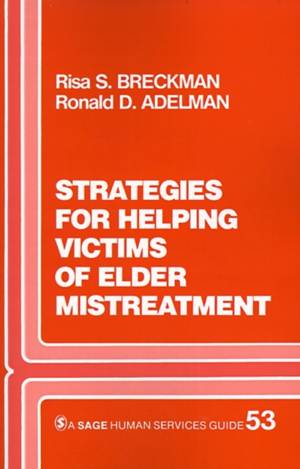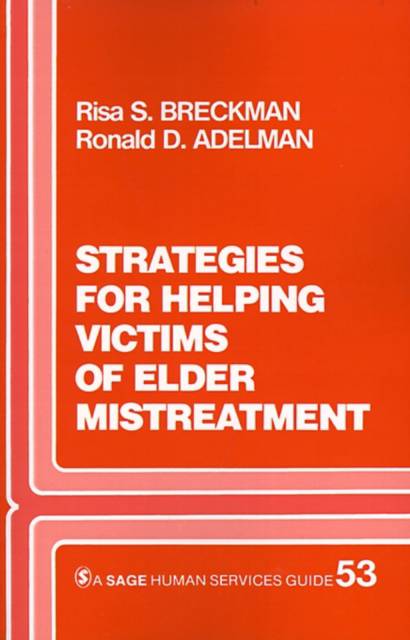
- Retrait gratuit dans votre magasin Club
- 7.000.000 titres dans notre catalogue
- Payer en toute sécurité
- Toujours un magasin près de chez vous
- Retrait gratuit dans votre magasin Club
- 7.000.000 titres dans notre catalogue
- Payer en toute sécurité
- Toujours un magasin près de chez vous
216,95 €
+ 433 points
Description
Who abuses the elderly--and why? How widespread is the problem? Where can victims of elder abuse turn for help? And, what forms of treatment are currently available? After defining the nature and pervasiveness of elder abuse, this practical guide examines: the characteristics of both victims and perpetrators, detection of abuse, risk factors of elder mistreatment, and intervention strategies. Actual case studies of abused individuals are examined, direct testimonies of victims are provided, and comments by professionals in the fields of social work, law, psychology, and nursing are offered. Strategies for Helping Victims of Elder Mistreatment offers practical suggestions for professionals in the fields of mental health, psychology, social work, nursing, family studies, law, and gerontology. In addition, it will serve as a valuable resource for training professionals to detect, assess, and intervene in cases where elder abuse is suspected. "This collection of articles addresses a pervasive problem in our society that is likely to become worse. . . . Intervention and treatment with elders and those who abuse them is a complex undertaking that must be addressed with both firmness and understanding. This book is a step in bringing light to this clouded issue." --Social Casework "It contains many practical suggestions for both assessment and intervention in elder mistreatment. Of particular value is an appendix containing an excellent written protocol for identification and assessment of adult protective service referrals." --Center for Aging Research and Educational Services "The authors have added new insight into the causes, consequences, and treatment of elder abuse. They introduce a conceptual model for intervention, which helps victims achieve greater understanding of their feelings about and relationships to the abusers. The model offers practitioners a method of handling a victim who is reluctant to accept help. . . . The book makes an important contribution to elder abuse practice." --Journal of Interpersonal Violence "A valuable addition to the growing literature on the problem. . . . Hopefully, it will encourage professionals in the field to consider victim support groups as a potential treatment modality in cases involving competent older victims." --Media Review
Spécifications
Parties prenantes
- Auteur(s) :
- Editeur:
Contenu
- Nombre de pages :
- 160
- Langue:
- Anglais
- Collection :
- Tome:
- n° 53
Caractéristiques
- EAN:
- 9780803930940
- Date de parution :
- 01-10-88
- Format:
- Livre broché
- Format numérique:
- Trade paperback (VS)
- Dimensions :
- 141 mm x 218 mm
- Poids :
- 244 g







